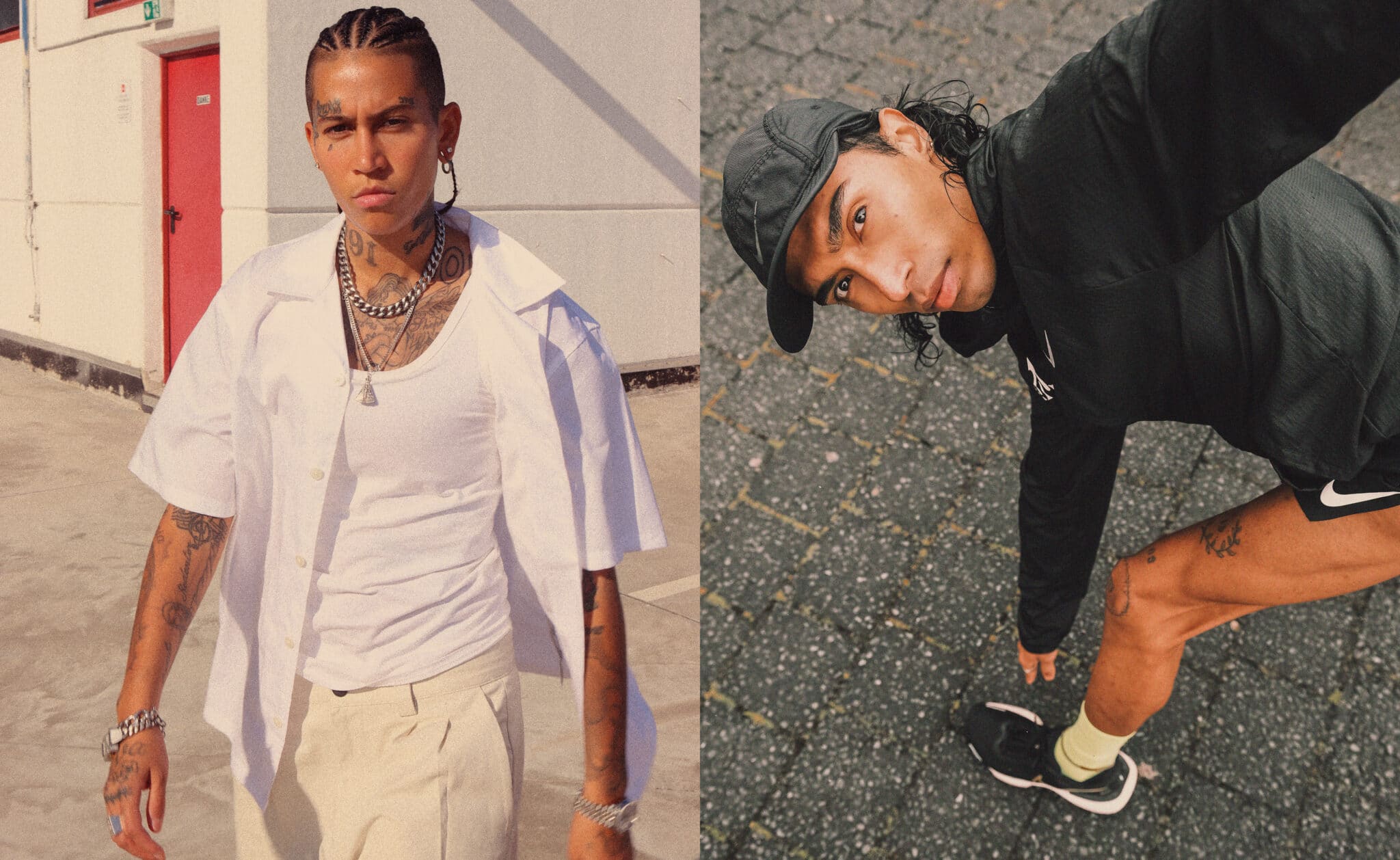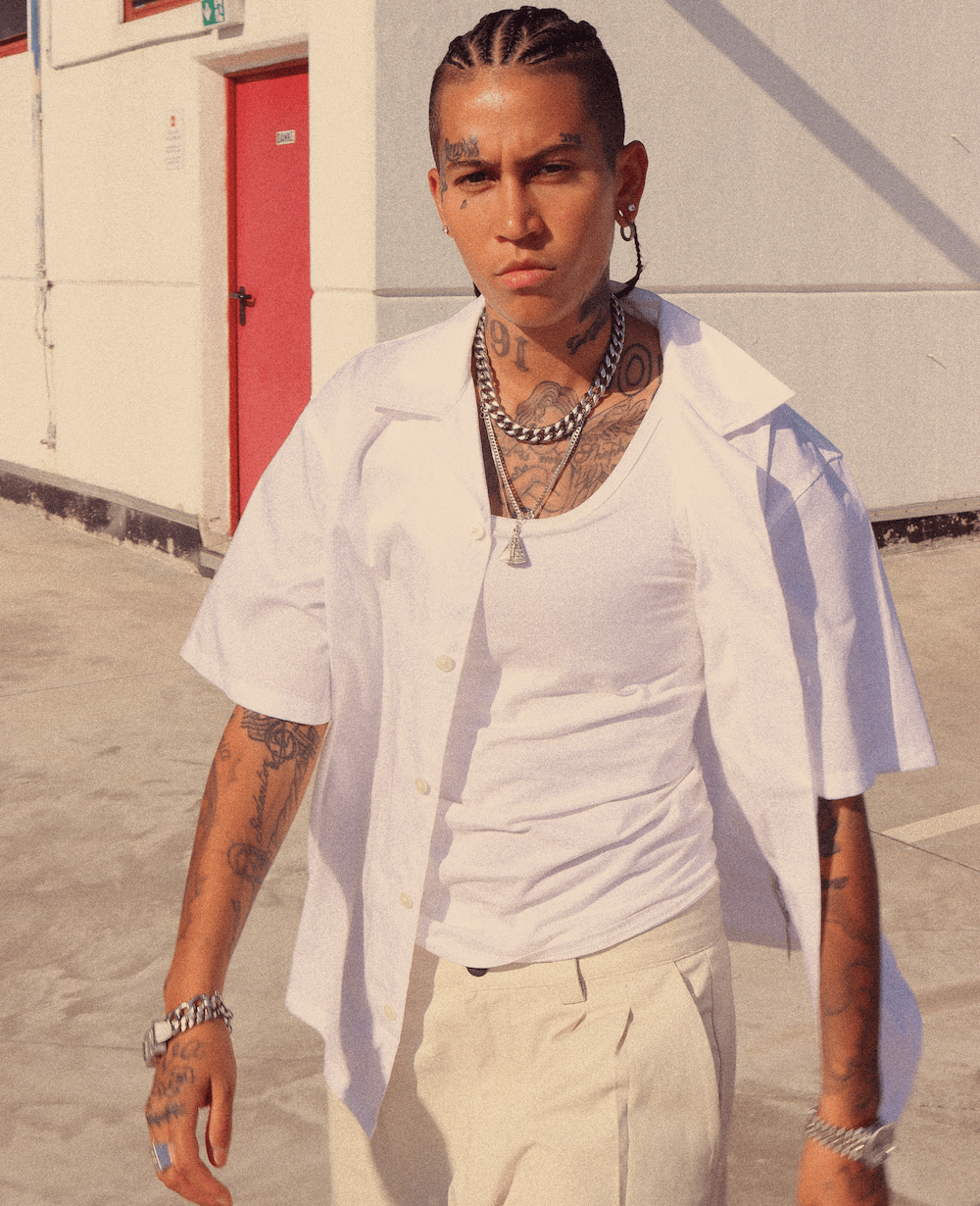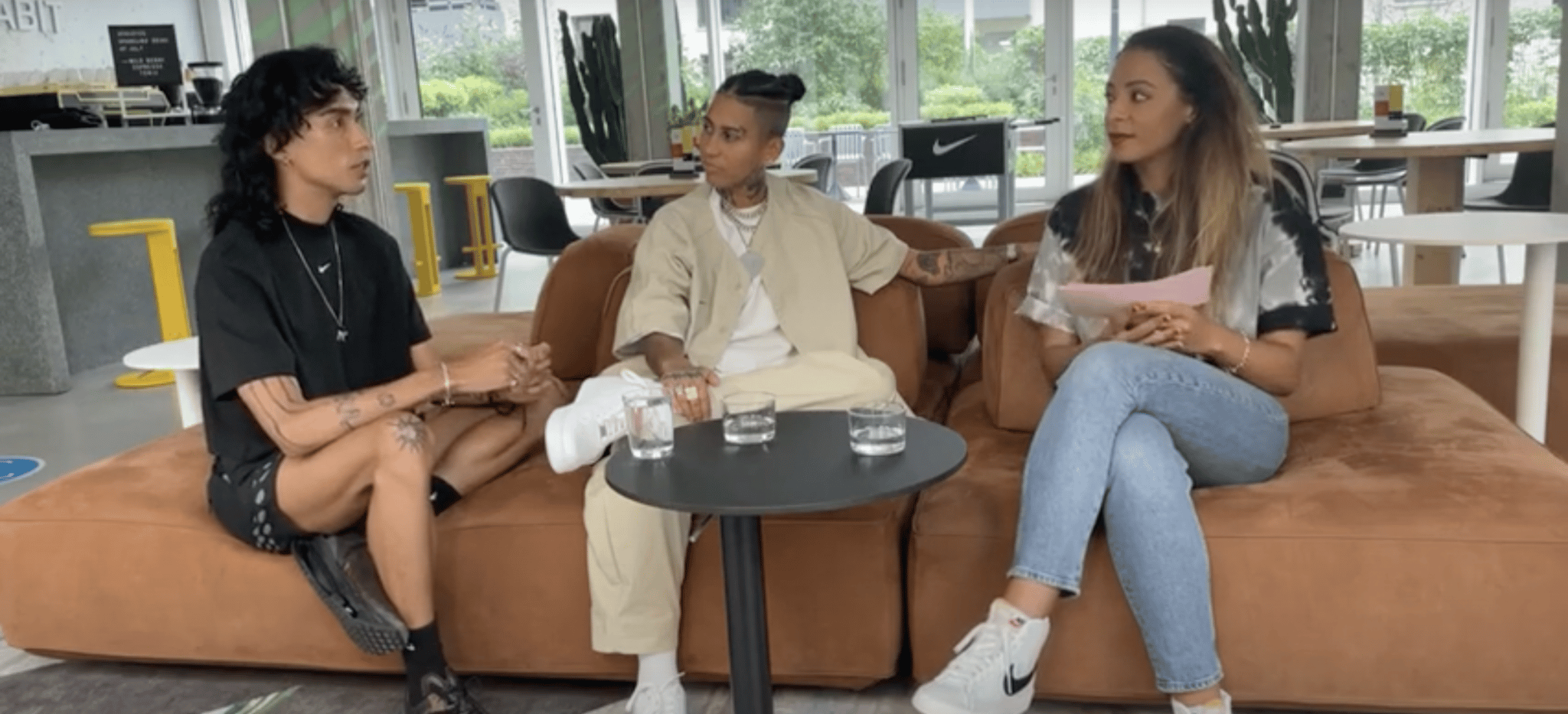DADDY x NIKE
Creating Brave Spaces in Sports

Steph Barreto de Araújo and Daniel Marin Medina discuss how we can build a future where everyone can win by creating brave spaces that make athletes feel seen.
Watch the full conversation on Instagram or YouTube.
It’s the middle of summer, and heat waves are rolling over Berlin, competing with the city’s usual gloomy greyness. The unpredictable weather doesn't stop Steph Barreto de Araújo, model and influencer, from moving and exercising. The same goes for athlete, artist, and writer Daniel Marin Medina who currently trains for the Chicago marathon.
Aside from their athletic achievements, both have one mission: creating brave spaces in sports for QTPOC of all ages through building and empowering inclusive communities.
Nike’s investment in those inclusive communities also extends to Wayv Run Kollektiv, a Berlin-based space, co-founded by Daniel, where underrepresented bodies can connect, move, and thrive together – in an environment usually dominated by white and cishet male bodies.
Steph, on the other hand, uses his social media presence and visibility in various modelling projects to spread messages of self-confidence, authenticity, and inner freedom to encourage his audience to stay true to themselves and to love and live unapologetically.

Practising sports isn’t only physically empowering but also has a great impact on mental health
The two athletes have always had a strong connection to sports. “Running has saved my life”, Daniel says earnestly. He co-founded Wayv Run Kollektiv to reclaim power for bodies constantly criticised for how they look, move or simply exist. Steph sees it as a way to take a break from everything he goes through in daily life and deal with anxiety and other emotions. It offers him an undeniable feeling of freedom and a way to recharge between stressful moments. He believes that, especially for QTPOC, it’s vital to grow and learn from each other to “break barriers and build new bridges together”.
According to Daniel, just a simple thing like being able to show up to practice without having to explain oneself to other people leaves him more energised and ready to put said energy into the training.
The importance of breaking down barriers for QTPOC youth in sports
When Daniel first came out in high school, he talked with his cross-country coach, who first advised him not to confide in his teammates. A week later, she came around and told him they would figure out together how to let his team know. It didn’t make everything easy on the spot, but Daniel was finally able to live his truth, and he even remembers that “the other kids would call each other out when someone made a homophobic comment.”
For Steph, high school sport carries a lot of negative memories. As a trans person, gendered changing rooms, team diversions and sportswear made it difficult for him to find a space to belong. They are adding to the alienation that can come with going through puberty, as teenagehood is an age where many people stop doing sports because it doesn’t feel good anymore.

To build a future where everyone can win, we need to invest in inclusive communities and reshift our perspectives of how we view sports, bodies, sexuality,
and gender
Education is powerful and continuously educating ourselves is a way to show each other respect and deconstruct barriers that keep us from being ourselves – unapologetically. It’s key not to shy away from necessary conversations without fear of making mistakes. “If you make mistakes, learn from them,” Steph advises. “It’s beautiful to grow.”
Within his job and private life, Steph has the possibility to create more visibility and give younger generations someone to look up to. For himself, he has found a community in ballroom, which provides a safe space for everyone who needs it and offers many ways for creative self-expression. He believes that when welcoming someone into a community, it’s essential to see each person as an individual, not to make assumptions or put them into a box. “We all benefit from certain levels of privilege, so it’s important that we check those,” Daniel adds.
Apart from checking oneself, it’s also important to check one’s workplace, family, and teams. Each athlete can contribute to building inclusive communities and making sports spaces safer, starting with stating one’s pronouns at the start of every session. In other situations, support is stronger felt from a distance, maybe in the form of financial support. Daniel believes that checking our privileges and checking in with others will also make us more sensitive about the spaces we occupy.
Brave spaces in sports are defined by accessibility and inclusivity, visibility and the support and celebration of each and everyone’s self-expression. While there are still many things that we are working towards, more and more of these spaces are coming to life, making athletes feel seen and better, while removing barriers to invite a new generation into sport. “Two things I would still like to see is a beautiful trans person winning the New York 5th Avenue Mile, and visibly queer high school kids running the Nike Cross Nationals,” Daniel tells us with an excited smile on his face. “If I could go back and run this race I would look extra queer on that day, just because it would be so special to see that on national TV, when most of the contestants have always been white and straight presenting kids.”
Representation matters – and athletes like Daniel and Steph are paving the way for a future where sports can bring society together as an empowering space that’s for everybody.
Get DADDY in your Inbox
Stay in the loop by subscribing to our newsletter
